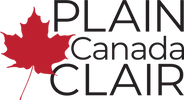Until recently, there has been no universal standard for creating plain language documents or for judging what is plain. This makes it difficult to assess the quality of documents.
Filling this need: a standard
For several years, plain language practitioners have been discussing options for creating an international standard. As you can see from the Timeline of Developing the ISO Plain Language Standard, the work has been truly international.
The plain language standard developed through the International Organization for Standardization (ISO) is based on an internationally agreed-upon definition. This means plain language practitioners around the world support this standard.
For the first time, we will have an agreed-upon standard that tells people what plain language is and how to create plain language documents.
How will this standard help?
The standard will be a valuable addition to your plain language tool kit.
- It will help to improve communication everywhere by giving you essential guidance on how to create documents that communicate effectively with intended readers.
- Its guidance is language neutral, so it applies to most, if not all, written languages.
What’s new in the standard?
Many aspects of the standard will be familiar to plain language practitioners. There are some new items in it that have not always been part of plain language work for all practitioners.
For example, there is information on
- readers’ culture
- readers’ accessibility needs
- ethics
- design
- evaluation
How can you get the standard?
The standard will be published in English, French, and Russian, which are the official ISO languages. People in many countries are already working on localizing and translating the standard for their cultures and languages.
Once it is published, you can buy a copy of the standard through your country’s standard-setting body or you can buy it directly from ISO.
Help us spread the word
PLAIN (International) will promote this standard around the world because it is useful, and it shows that plain language is a profession. You can be at the forefront of this change; join us in using and promoting the standard.
Contact me (Gael) if you want to do either of these:
- Start a working group focused on marketing this standard in Canada.
- Join the International Plain Language Federation committee working to localize and implement the standard. (To join this committee, you must be a member of Clarity, the Center for Plain Language, or Plain Language Association International.)
